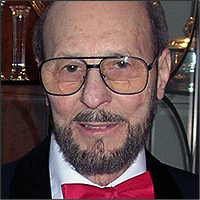Dr. Anthony Palmer
// Professor of Music Education at Boston UniversityDR. ANTHONY PALMER is Professor of Music Education at Boston University in Boston, Massachusetts. He has taught Music Education at the University of Tennessee, University of California, Los Angeles, and the University of Hawai’i at Manoa. Dr. Palmer’s specialist topics include choral conducting, world musics in music education, practical and philosophical courses, aesthetics and philosophy of music. He has published several articles in major national and international journals, including a chapter on “Music” in “Multicultural Hawai’i: The Fabric Of A Multiethnic Society”, and “World Musics And Music Education: Facing The Issues”. Anthony Palmer has produced thirty choral compositions, arrangements, and editions published by Boosey & Hawkes, Mark Foster Music, and National Music Publisher. Dr. Palmer is also one of the founding members of the International Society for the Philosophy of Music Education.
Photo: Dr. Anthony Palmer
Interview:
Music, beyond its pitches and rhythms, timbres and dynamics, has elusive qualities that many have difficulty identifying and discussing. Tagore, Maslow, Capra, each representing different facets in the pursuit of knowledge, speak about the ineffable and the spiritual, mystical experiences that permeate our existence. None can define it nor delineate all the words that we use to describe extraordinary experience. In my view, spirituality seems to describe that quality of human life that stems from the consciousness of the self, from that existential moment occurring in one’s life rather early when an awareness becomes manifested of the “me” or the “I”, and basic questions began to be posed. For example, “What is this that I am experiencing?”, “Why am I here?”, and “What is this ‘here’ of which I am aware?”
My contention is, however, that these questions are not religious in origin, although they are given answers by religious traditions, and could possibly have generated the desire for formalized ritual. Rather, the questions are psychological responses to the foreboding of nature’s power expressed through wind, rain, earthquakes, volcanic activity, and other natural phenomena, and the vicissitudes of life. Early humans, having limited understanding of physical events and disease, looked to a supernatural source for life and for all existence. Under any circumstances, the questions remain an integral part of human mentality.
These fundamental questions are answered satisfactorily when we find unity, connection, and lead one to higher levels of consciousness, that is, transcendence. Achieving this level of consciousness inevitably results in a sense of experiencing the mystical. And yet it is only a sense of experience. When the individual grasps a sense of being in the world and simultaneously a part of it, consciousness is not dragged down by the weighty questions of existence; ergo, in a manner of speaking, the spirit takes flight. Transcendence belongs to the inner world of our lives. Music, as a material aural phenomenon at the same time that it has these otherworld dimensions, serves superbly as the bridge between the outer and inner worlds. Excerpts taken from articles by Dr. Anthony Palmer published in the Philosophy of Music Education Review. © 2009 Anthony Palmer. All Rights Reserved. Used with permission.
“Music, as a material aural phenomenon… serves superbly as the bridge between the outer and inner worlds.”
– Dr. Anthony Palmer, Professor of Music Education at Boston University


